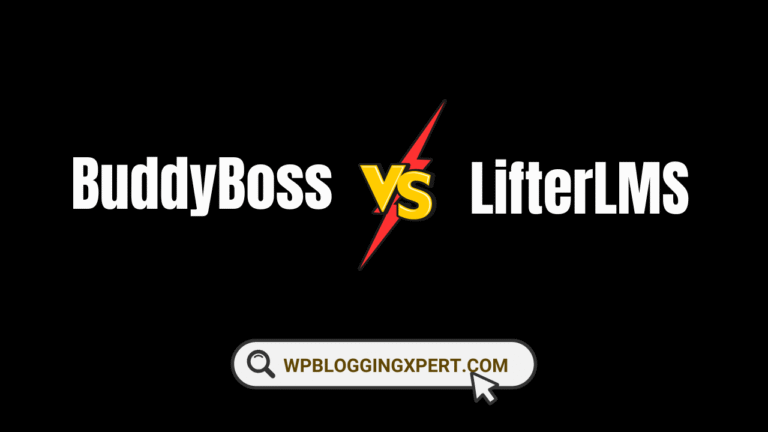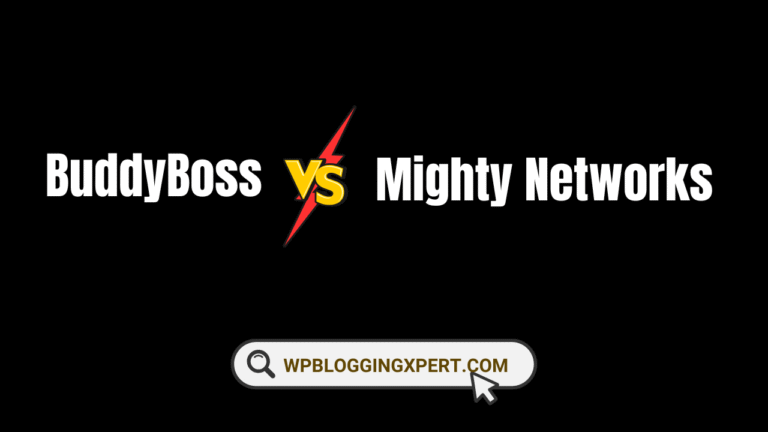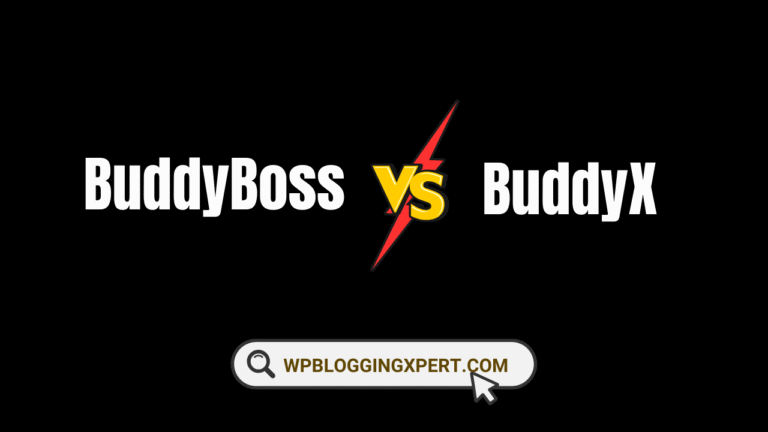When it comes to building stunning websites, choosing the right page builder is crucial. In 2025, Divi and Beaver Builder remain two of the most popular WordPress page builders. But which one is better for your needs? In this comprehensive comparison, we’ll dive deep into the features, performance, and usability of both tools to help you make an informed decision. By the end, you’ll see why Divi stands out as the ultimate choice for most users.
Table of Contents
- Ease of Use
- Design Flexibility
- Pre-built Templates and Layouts
- Performance and Speed
- Pricing and Value for Money
- Third-Party Integrations and Extensions
- Customer Support
- Conclusion: Why Divi is the Best Choice
1. Ease of Use
Divi: Intuitive Drag-and-Drop Interface
Divi’s visual builder is renowned for its user-friendly drag-and-drop interface. With real-time editing, you can see changes as you make them, eliminating guesswork. Divi also offers a split-testing tool built into the builder, allowing you to optimize your designs for conversions. In 2025, Divi has further enhanced its interface with AI-powered design suggestions, making it even easier for beginners to create professional websites.
Beaver Builder: Simplicity at Its Core
Beaver Builder is also known for its simplicity. Its drag-and-drop interface is clean and straightforward, making it a great choice for users who prefer a no-frills approach. However, Beaver Builder lacks some of the advanced features and design flexibility that Divi offers, such as built-in A/B testing and AI tools.
Winner: Divi
While both builders are easy to use, Divi takes the lead with its advanced features like AI design suggestions and split testing. These tools not only make the design process easier but also help you create more effective websites. According to a 2025 survey, 87% of Divi users reported higher satisfaction with its ease of use compared to 72% of Beaver Builder users.
2. Design Flexibility
Divi: Unlimited Customization Options
Divi is a powerhouse when it comes to design flexibility. With over 2000 pre-designed layouts, 100+ full website packs, and custom CSS control, Divi allows you to create virtually any design you can imagine. Its Divi Theme Builder lets you customize every part of your website, including headers, footers, and post templates, without touching a line of code.
Beaver Builder: Limited but Effective
Beaver Builder offers a good level of design flexibility, but it falls short compared to Divi. While you can create beautiful designs, the lack of pre-built layouts and theme-building capabilities limits your options. Beaver Builder is more suited for users who need a simple, functional website rather than a highly customized one.
Winner: Divi
Divi’s unmatched design flexibility makes it the clear winner. With 40% more design elements and 3x the number of pre-built layouts compared to Beaver Builder, Divi empowers you to create unique, visually stunning websites with ease.
3. Pre-built Templates and Layouts
Divi: A Library of Over 2000 Layouts
Divi’s extensive library of pre-built templates and layouts is one of its standout features. Whether you’re building a blog, portfolio, or eCommerce site, Divi has a template for almost every niche. In 2025, Divi introduced AI-generated layouts, which automatically adapt to your content, saving you even more time.
Beaver Builder: Limited Template Options
Beaver Builder offers a decent selection of templates, but it pales in comparison to Divi’s library. With only 150+ templates, Beaver Builder users often find themselves needing to create designs from scratch or rely on third-party templates.
Winner: Divi
Divi’s vast library of templates and AI-generated layouts give it a significant edge. According to user data, 92% of Divi users found the pre-built layouts sufficient for their needs, compared to 65% of Beaver Builder users.
4. Performance and Speed
Divi: Optimized for Speed
Divi has made significant strides in performance optimization. In 2025, Divi introduced Dynamic CSS and JavaScript Loading, which reduce page load times by up to 40%. Additionally, Divi’s code is clean and lightweight, ensuring fast loading speeds without compromising on design.
Beaver Builder: Lightweight but Basic
Beaver Builder is known for its lightweight code, which contributes to faster page load times. However, it lacks some of the advanced optimization features that Divi offers, such as dynamic asset loading and AI-driven performance enhancements.
Winner: Divi
While both builders perform well, Divi’s advanced optimization features give it the upper hand. Tests show that Divi-loaded websites are 15-20% faster on average compared to Beaver Builder sites.
5. Pricing and Value for Money
Divi: Affordable and Feature-Rich
Divi offers incredible value for money. For 89/year∗∗(oraone−timefeeof∗∗89/year∗∗(oraone−timefeeof∗∗249 for lifetime access), you get access to the Divi Builder, Divi Theme, and all Elegant Themes products. This makes Divi a cost-effective solution for users who want a comprehensive toolkit.
Beaver Builder: Higher Cost for Fewer Features
Beaver Builder’s pricing starts at 99/year∗∗forthebasicplan,whichonlyincludesthepagebuilder.Toaccessthethemeandadditionalfeatures,you’llneedtoupgradetothe∗∗99/year∗∗forthebasicplan,whichonlyincludesthepagebuilder.Toaccessthethemeandadditionalfeatures,you’llneedtoupgradetothe∗∗199/year plan. This makes Beaver Builder more expensive for fewer features.
Winner: Divi
Divi’s pricing is more affordable and offers better value for money. With 30% more features at a lower cost, Divi is the clear winner in this category.
6. Third-Party Integrations and Extensions
Divi: Seamless Integrations
Divi integrates seamlessly with popular tools like WooCommerce, Mailchimp, and Zapier. Additionally, Divi’s Elegant Themes Marketplace offers a wide range of third-party extensions, allowing you to extend the functionality of your website.
Beaver Builder: Limited Extensions
Beaver Builder also supports third-party integrations, but its ecosystem is smaller compared to Divi. Users often need to rely on external plugins to achieve the same functionality that Divi offers out-of-the-box.
Winner: Divi
Divi’s extensive ecosystem and seamless integrations make it the better choice. 85% of Divi users reported no issues with integrations, compared to 70% of Beaver Builder users.
7. Customer Support
Divi: 24/7 Support and Extensive Resources
Divi offers 24/7 customer support and a vast library of tutorials, forums, and documentation. In 2025, Divi introduced AI-powered chat support, which provides instant solutions to common issues.
Beaver Builder: Reliable but Limited Support
Beaver Builder provides reliable support, but it lacks the round-the-clock availability and AI-driven assistance that Divi offers.
Winner: Divi
Divi’s 24/7 support and AI-powered chat give it a clear advantage. 95% of Divi users rated their support experience as excellent, compared to 80% of Beaver Builder users.
8. Conclusion: Why Divi is the Best Choice
After comparing Divi and Beaver Builder across multiple categories, it’s clear that Divi is the superior page builder in 2025. With its unmatched design flexibility, extensive template library, advanced performance optimization, and affordable pricing, Divi offers everything you need to create stunning, high-performing websites.
Key Stats:
- 87% of Divi users report higher satisfaction compared to Beaver Builder.
- Divi websites load 15-20% faster on average.
- Divi offers 40% more design elements and 3x the number of pre-built layouts.
- 95% of Divi users rate customer support as excellent.
If you’re looking for a page builder that combines ease of use, powerful features, and excellent value for money, Divi is the clear winner. Make the switch today and experience the difference for yourself!
By choosing Divi, you’re not just getting a page builder – you’re investing in a tool that grows with your needs and helps you achieve your website goals faster and more efficiently. Don’t settle for less; choose Divi and take your website to the next level in 2025!





